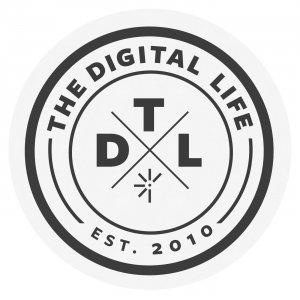The Digital Life

Future Crime and the Surveillance State
Jon: Welcome to episode 146 of The Digital Life, a show about our adventures in the world of design and technology. I'm your host, Jon Follett, and with me is founder and co-host Dirk Knemeyer.
Dirk: Greetings, Jon.
Jon: Today Dirk, we're going to discuss the surveillance state in software. In particular, China is embarking on some interesting endeavors to use predictive analytics and big data to stop terrorism before it can happen. The key words there are before it can happen, which might sort of bring to mind the pre-crime unit of Minority Report fame which is the dystopian Philip K. Dick novel that was made into a movie starring Tom Cruise that everybody likes to cite for various reasons. Pre-crime is the concept that before even the criminal knows exactly what they're doing, the surveillance state knows and clamps down on them. In this case terrorism is sort of the first and foremost element that the Chinese state wants to prevent. Of course, we have a similar mandate to protect United States citizens from terrorism and use all this data. Of course, the questions that all of that raises, especially using predictive analytics to do it, are interesting indeed. I'll set up the news item which you shared with me yesterday.
China Electronics Technology Group, which is one of their state run defense contractors, is developing the software, and they're basically going to assemble and analyze data on ordinary citizens. It's everything from what they're buying, what their employment is, where they go on holiday, things like that, to try to feed this predictive analytics data base. Secondly, at the beginning of the year there were some anti-terror laws in China that allowed the government ... They went into effect at the beginning of the year and they allowed the government to access a whole slew of new types of data. Everything from bank accounts to even surveillance cameras. The name of their surveillance camera unit is unironically named Skynet for some reason. Thanks very much for that. Additionally you got your major Chinese tech companies which more or less comply with government requests for data, everything from their major search engine Baidu to their social messaging apps to their e-commerce sites. All of them supply information.
Then lastly the Chinese government revealed last year that it was building a nationwide data base that would rank citizens and score them on their trustworthiness. Boy, I hope I get a good ... Well, we all, if we were being ranked on trustworthiness, would want to get an A grade. Wouldn't we? If the government was ranking us. All this is very creepy and it's perhaps easier to access from this news item which is focused on China, of course, but we have similar surveillance state creepiness happening in the US. Pick your poison, Dirk. Where would you like to start?
Dirk: Yeah, there's lots of fodder there. I mean, look, as you're sort of alluding, it's easy to dismiss this as a China thing. Right? Totalitarian state regularly oppresses the liberties of the citizens. For me what's compelling about this story is the fact that it's a foreshadowing of things that we're going to be dealing with in the United States, both in ways similar to what are being outlined here in a Chinese context, but also things far, far beyond that I believe. We are likely headed for a future where the government is using data to predict future behavior and takes preemptive action to control that behavior. Look, even thirty years ago we knew very little about the human animal. We would rely on things like characteristics that go back to classical times that we would bestow upon people. That's a person with character. That's a person with self-control. That's a person with honor. That's a person who is trustworthy.
There are notions that I think are going to appear increasingly quaint as we know more and more about the human animal. I did a lot of research into violent crime a few years ago.






 Visit Podcast Website
Visit Podcast Website RSS Podcast Feed
RSS Podcast Feed Subscribe
Subscribe
 Add to MyCast
Add to MyCast